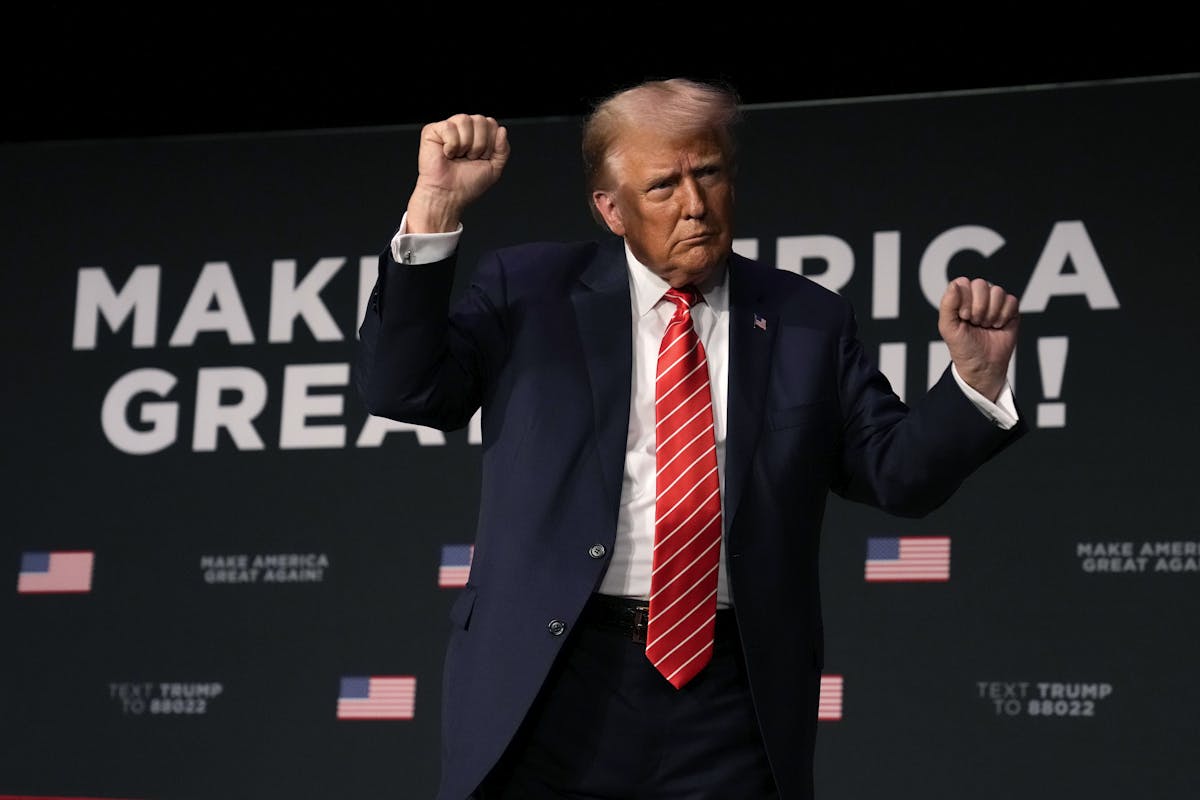Trump’s Double Jeopardy Argument Could Be His Best Shot at Dismissing January 6 Charges
The former president makes his case that he has already been tried for his actions on January 6 — by the Senate.

President Trump’s best hope for delaying his January 6 criminal trial — or dismissing the charges entirely — could be a constitutional argument so exotic, based on facts so unusual, that it has never before been fully argued in a court of law.
Mr. Trump’s motion for dismissal, made in a filing to Judge Tanya Chutkan, that his acquittal by the Senate after his impeachment renders Special Counsel Jack Smith’s charges against him a species of double jeopardy means that the former president is gambling that one of the most ancient taboos in Anglo-American law can save him from prison.
The Fifth Amendment ordains that no person be “subject for the same offense to be twice put in jeopardy of life or limb.” Part of the common law for nearly a millennium, courts see this prohibition on double jeopardy as so significant that it can be raised before a trial even begins — as Mr. Trump has now done — and is grounds for automatic dismissal.
Mr. Trump’s argument that the “United States Senate has previously tried and acquitted” him for “charges arising from the same course of conduct alleged” in Mr. Smith’s indictment is more bespoke, though, than a standard double jeopardy defense. It enlists the impeachment clause to persuade Judge Chutkan that the former president has already been tried for the events of January 6, 2021 — and the Senate was his jury.
That provision orders that a “party convicted” of impeachment “shall nevertheless be liable and subject to Indictment, Trial, Judgment and Punishment, according to Law.” Mr. Trump maintains that the presence of the word “convicted” means that an acquittal following an impeachment trial frees that exonerated person from further scrutiny from the Department of Justice.
That same department, in a memorandum of law, has taken the position that an acquittal does not preclude further prosecution. The government, though, allows that it is a close call and that there is “a reasonable argument” for the view that the Constitution “should be read to bar prosecutions following acquittal by the Senate.” That is Mr. Trump’s position.
Should the case reach the Supreme Court, it appears as if at least one justice could be inclined to agree with the former president. Justice Samuel Alito, in a dissent in a 2020 case, Trump v. Vance, writes that prosecution after impeachment “is a consequence that can come about only after the Senate’s judgment, not during or prior to the Senate trial.”
A legal sage, though, is skeptical. Joshua Blackman allows to the Sun that “if an impeachment process couldn’t support a conviction, it might create hesitation about whether the criminal process should go down the same path.” However, he explains that impeachment is a “civil remedy” while a conviction in court is a criminal outcome. He maintains that an acquittal in the former does not preclude charges in the latter.
Mr. Blackman also observes that the charge for which Mr. Trump was impeached and acquitted — “incitement to insurrection” — is not the same one for which Mr. Smith has charged the former president. The special counsel opted for a passel of conspiracy statutes rather than the more serious insurrection charge, which, in addition to prison time, is punishable with a bar from holding office.
Mr. Trump, though, argues that Mr. Smith “lacks authority to second-guess the determination of acquittal made by the United States Senate,” because the “government—through Congress—already put President Trump on trial once, placing him in jeopardy for an alleged criminal offense arising from the same course of conduct alleged in the indictment.”
The former president’s attorneys hope to convince Judge Chutkan that even if the charges differ, that same “course of conduct” — efforts to overturn the result of the 2020 election — means that the special counsel’s charges are unconstitutionally redundant. Despite impeachment having emanated from Congress and the criminal charges from the DOJ, both those bodies are organs of the same “sovereign” — the federal government.
The principle that the same sovereign cannot charge sequentially for crimes sourced to the same conduct was eloquently put, in dissent, by Justices Neil Gorsuch and Ruth Bader Ginsberg. Justice Gorsuch, in words that could come to the aid of Mr. Trump, writes that “a free society does not allow its government to try the same individual for the same crime until it’s happy with the result.”

